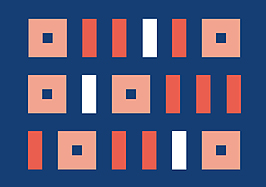Latest Featured Content
Science, Sun and Snacks: public engagement with the Newcastle West End Foodbank
By: Eugenie Evelynne Johnson, Emily Hunter, Sean Gill, Rhiannon Potter, Victoria Harbottle, Niina Kohlemainen and Fiona Pearson Engaging members of the public in research is important. At the Innovation Observatory we are always learning about how to do it better and with different groups of people - including through our ongoing public partnership with the […]
Are non-invasive or minimally invasive autopsy techniques for detecting cause of death in prenates, neonates and infants accurate? A systematic review of diagnostic test accuracy
We performed a systematic review of diagnostic test accuracy with the objective to assess the diagnostic accuracy of non-invasive or minimally invasive autopsy techniques in deaths under 1 year of age. MEDLINE (Ovid), EMBASE (Ovid), CINAHL (EBSCO), the Cochrane Library, Scopus and grey literature sources were searched from inception to November 2021. Studies were included if […]
Unmet health and care needs for people aged 60+ years: a consultation survey
The Innovation Observatory is a horizon scanning facility funded by the National Institute of Health and Social Care Research. Our goal is to identify new developments in medicines, technologies and care that could be used in the UK National Health Service, and to identify unmet health and care needs that future innovations could address.
Advanced Therapy Medicinal Products (ATMPs) monitored by the NIHR Innovation Observatory

Advanced therapy medicinal products (ATMPs) are medicines for human use that are based on genes, tissues or cells. They offer ground-breaking new opportunities for the treatment of disease and injury. This dashboard provides an overview of ATMP medicines that have been monitored by the NIHR IO on our internal database, MInD, since April 2017. It provides the user with the details of the ATMP products including the therapy areas, development stage, EMA designations and information on the type of innovations (eg monotherapy vs combination, cancer and rare indications).
AI-Based Healthcare Technologies

Artificial Intelligence-, Machine Learning- and Deep Learning- enabled medical technologies encompass a diverse range of technologies. They offer exciting new possibilities in the diagnosis, management and treatment of diseases and injuries. This dashboard provides an overview of trends in innovation of AI-based medical technologies, identified through clinical trial registries. Additionally, this dashboard also provides analysis of trends of AI-based medical technologies approval by FDA from 1995-2023, extracted from FDA database. For further details about implications and insights from our results, please refer to our report.
Repurposed medicines

This dashboard provides the user with an overview of repurposed medicines that have been identified by the NIHR Innovation Observatory from clinical trial registries and our internal database MInD.








